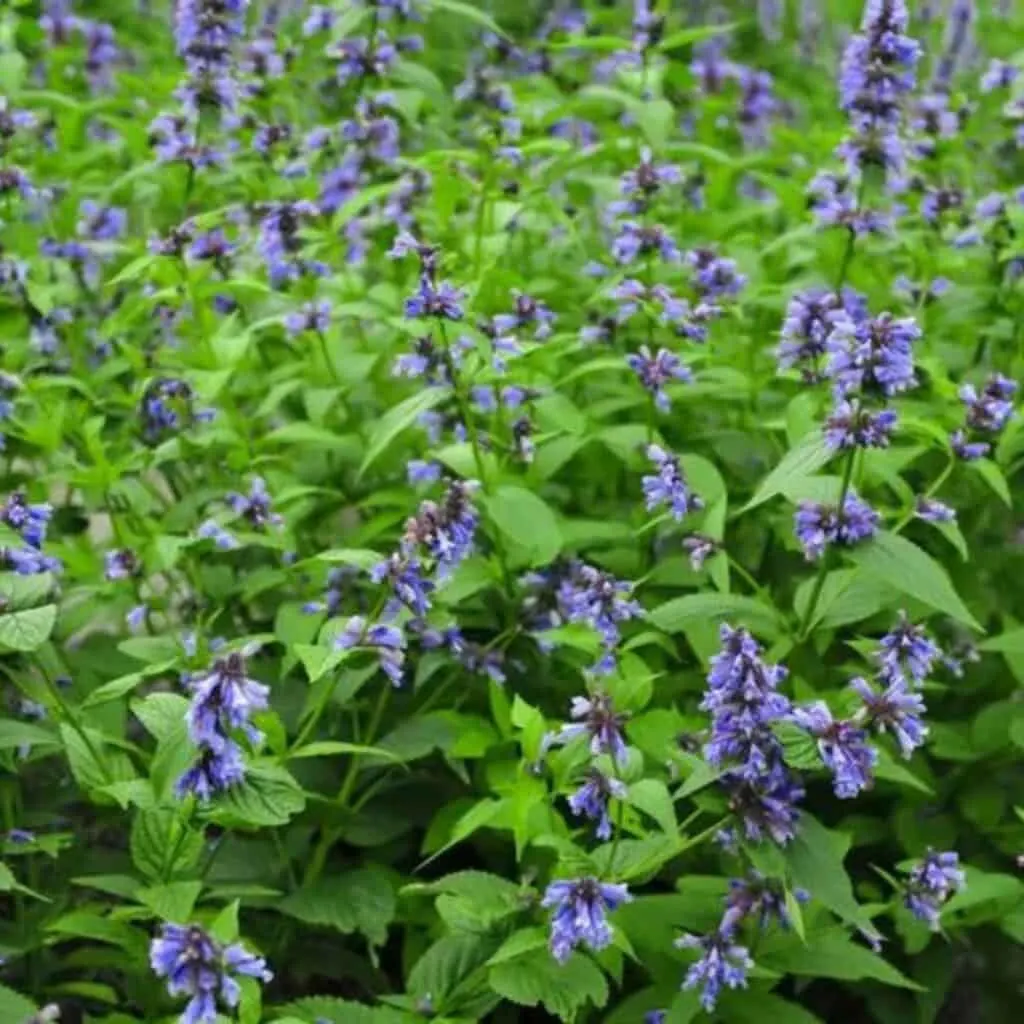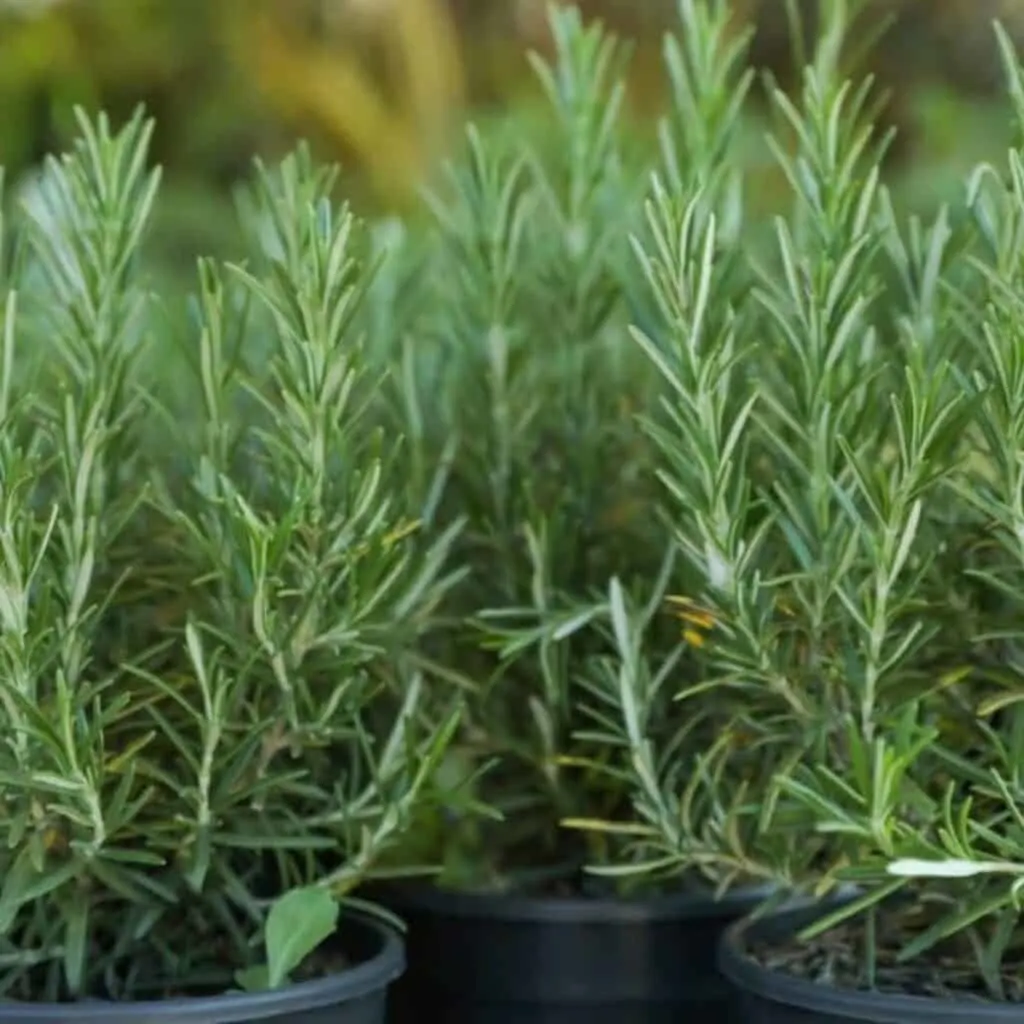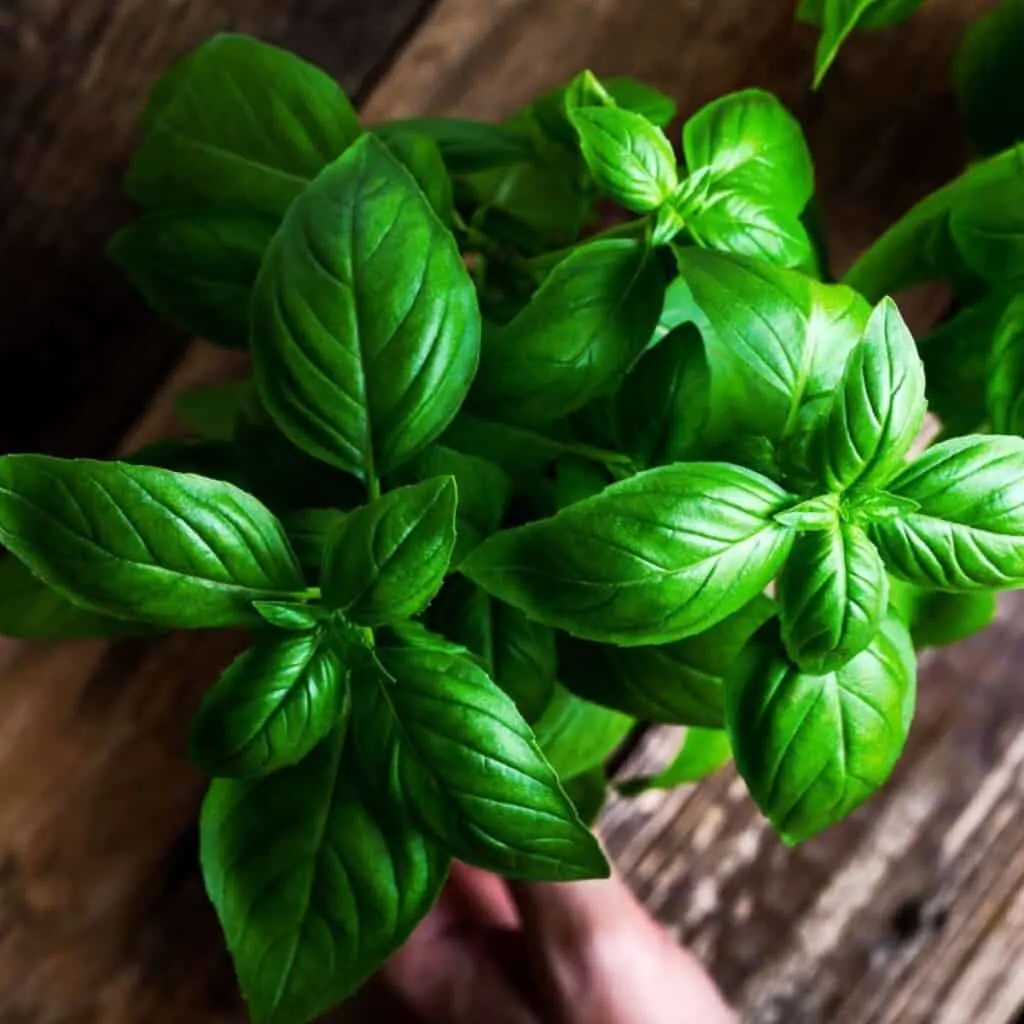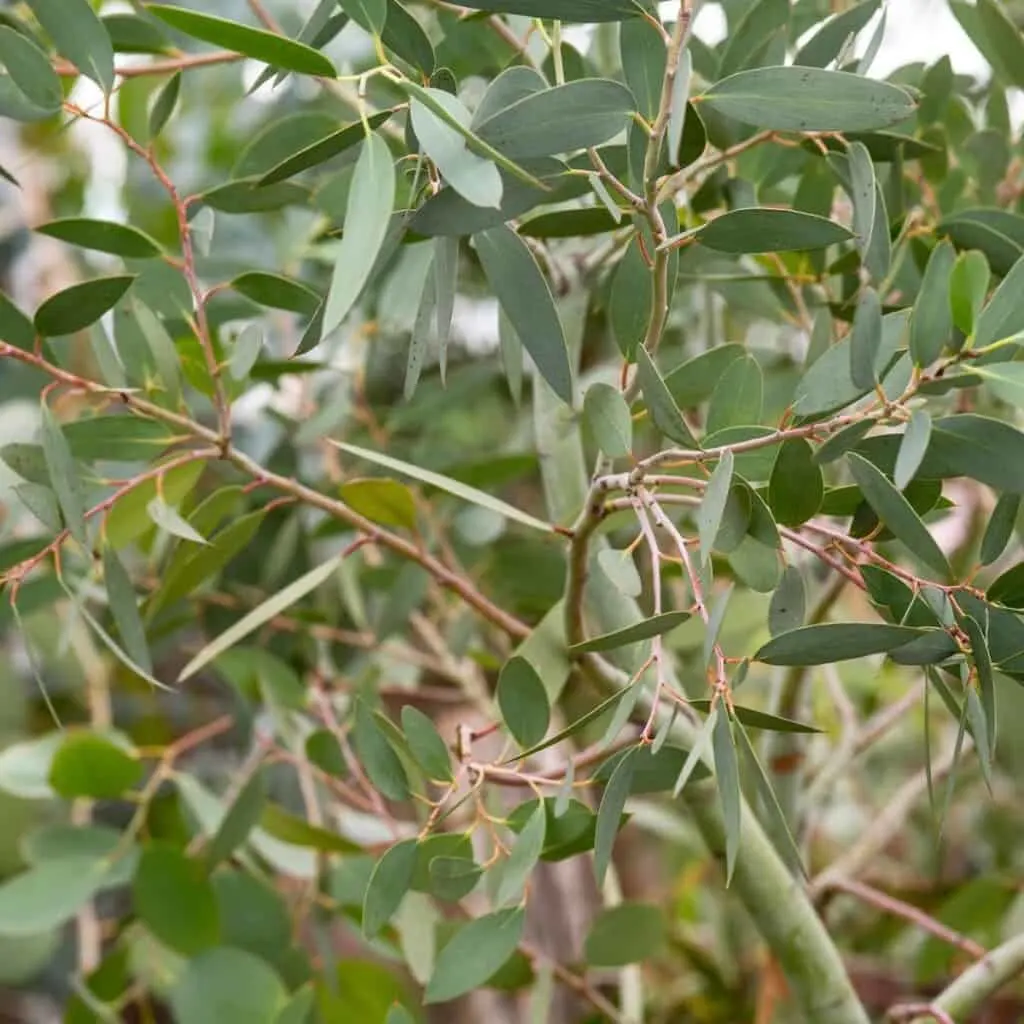If you are struggling with mosquitos in your outdoor space then you might want to try to naturally keep them away. I have 14 plants and trees that repel mosquitos and also will elevate the look of your home!
Mosquitos are a nuisance. Some people are naturally attracted to mosquitos (me!) and others are not (my husband!). There are some days I don’t even go outside because I just don’t want to get eaten alive.
So after much research and trial, I have some great ways to keep those bugs away so you too can enjoy the outdoors!
*This post contains affiliate links. For more details see my full disclosure.
How to Naturally Repel Mosquitos
There are many plants and trees that you can plant to keep mosquitos away but her are some other ideas that will also help keep them from your space.
First and foremost make sure you don’t have any standing water. These are breeding grounds for mosquitos.
Run a fan in your outdoor space to blow them away. This is a win-win because it also helps you keep cool in the warmer temps.
NuSkin has a lotion that naturally repels mosquitos, it’s called Baobab Body Butter and it works really well. So if you hate bug spray like I do give this a try.
The other way is to plant naturally repellant trees and plants to keep those pesky bugs away!
Plants and Trees that Repel Mosquitos
Let’s break this up into three categories: plants, herbs, and trees.
Plants that Repel Mosquitos
Lemon Grass
Lemon Grass is a plant native to Sri Lanka and India. In the US it’s a perennial in zones 10 and 11 but in other zones can be grown as an annual.
This plant has gorgeous gray-green foliage and in the fall turns a brilliant red. Unfortunately, this plant is mildly toxic to dogs, cats, and horses so keep that in mind if you have pets.

Citronella
Citronella is part of the geranium family and emits the scent of citrus. The oils in the plant are a natural deterrent to mosquitos.
This plant is an evergreen perennial in zones 9 to 11 but in other zones can be grown as an annual. Unfortunately, this plant is toxic to dogs so if you have pets keep these plants out of reach in pots or in a part of the yard that your pets cannot get to.
Lemon Balm
Lemon balm is native to Europe but is now grown all over the world. As far back as the Middle Ages this plant was used for medicinal purposes to treat anxiety, promote sleep, and help ease discomfort from indigestion.
This plant grows about 2 feet high and attracts bees. In the summer it has gorgeous small yellow flowers with yellow to green leaves and stems.
Geraniums
Geraniums are a great summer plant that is both drought and heat tolerant. It is perfect for hanging baskets, pots, and gardens.
Depending on the variety this plant can grow from 12 to 24 inches tall in a wide variety of colors. The foliage tends to be a leafy green to sometimes bronze.
Geraniums love full sun and can last through frost. If you have cold winters it will not survive so you might have to bring the plant indoors if you want to overwinter it.
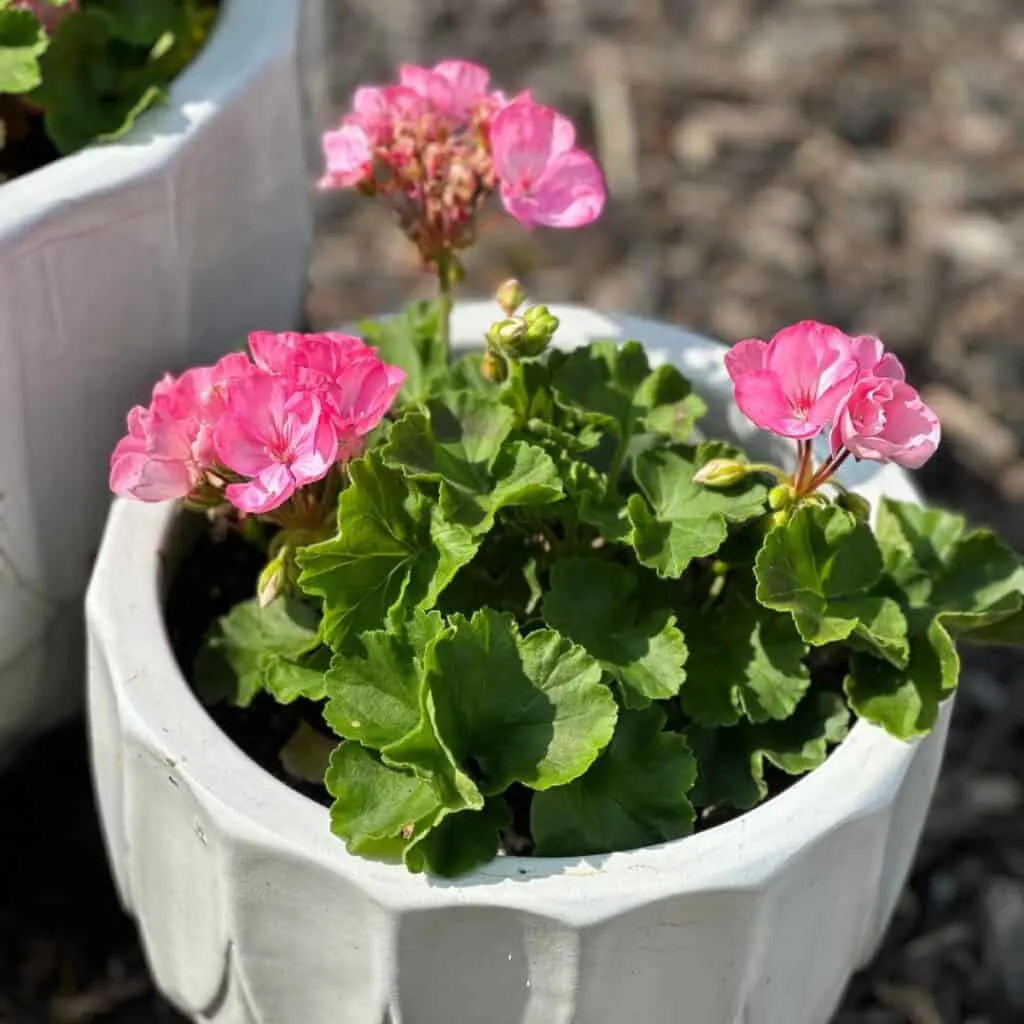
Lavender
Lavender grows from 1 to 3 feet tall and is hardy through zone 5. Not only does it add a wonderful aroma to your garden but it’s also popular for culinary and medicinal purposes.
This plant is easy to grow and isn’t particular about the type of soil it’s planted in. It attracts bees and other pollinators as well.
Marigold
There are over 50 species of Marigolds. They come in a wide variety of colors from bright yellow to coppery gold and more.
Marigolds are very easy to grow and are a very popular plant for beginner gardeners because of their hardiness. They love full sun and do very well in hot areas.
Catmint (aka Cat Nip)
Most people call this plant Cat Nip but it’s actually part of the mint family. This plant blooms late summer to fall with gorgeous lavender-blue flowers.
This plant is hardy in zones 3 to 8 and thrives when you just leave it alone. It is drought-tolerant, pest and disease free, and repels deer and rabbits.
Allium
Allium is actually a bulb and is part of the onion and garlic family. They are hardy in zones 4 through 9.
Allium prefers full sun. Some of the taller varieties might benefit from being planted near a wall so they don’t break in strong winds. Because of their onion smell, most animals don’t like them but they are toxic to dogs, cats, and horses.
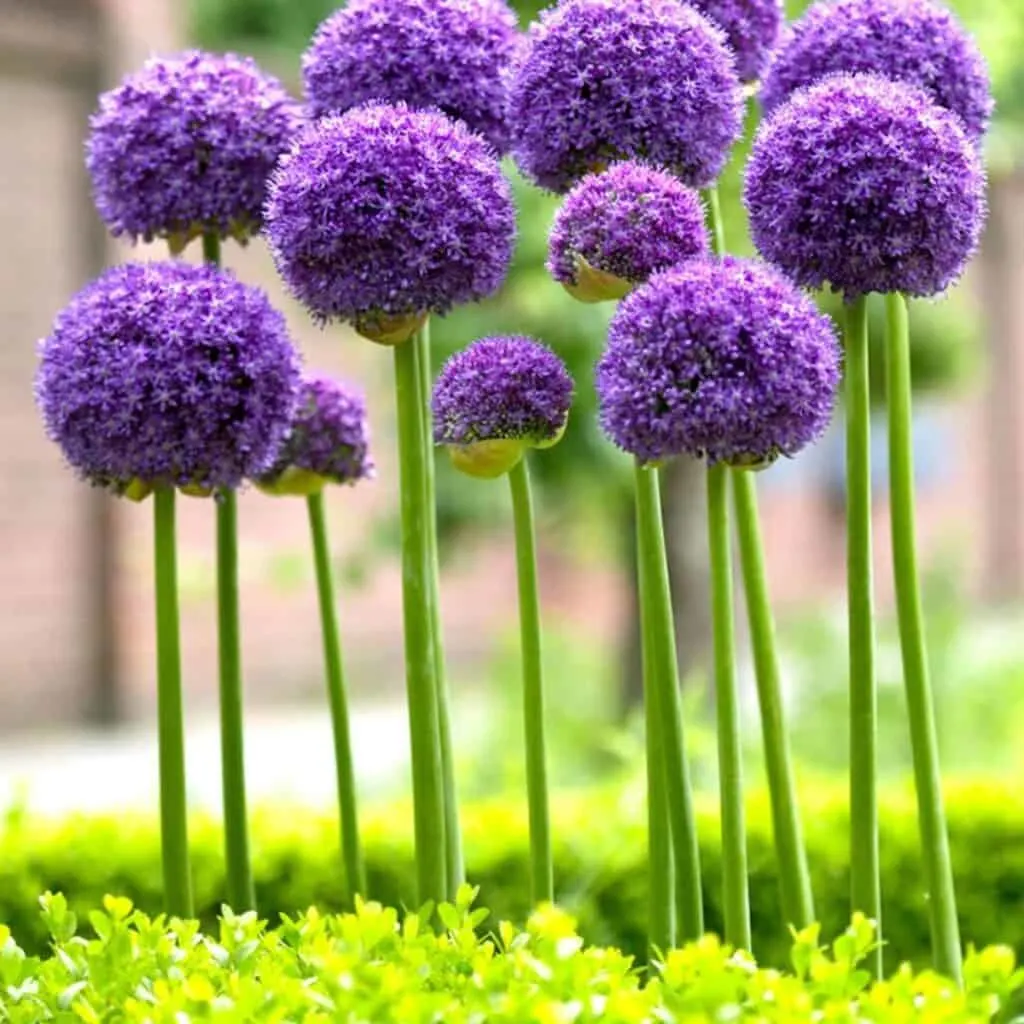
Herbs that Repel Mosquitos
Rosemary
Rosemary is an evergreen shrub in the mint family. It has been widely used even in ancient times for remembrance, fidelity, and memory.
It can be a perennial but cannot stand temperatures under 20 degrees. If you live in a colder climate it’s advised to plant in a pot so you can bring it inside once it gets cold.
Rosemary is used in cosmetic, medicinal, and culinary areas as well as ornamental. It can be pruned into topiaries.
Basil
Basil is easy to grow and is a great partner for tomatoes. Don’t plant outside until the soil temperature is above 50 degrees.
Basil is also a member of the mint family and is most commonly used in culinary arts. It needs 6 to 8 hours of full sun a day.
Mint
Mint is a wonderfully smelling plant and can grow just about anywhere. You have to be careful where you plant it because it spreads quickly and can take over your garden.
This plant not only repels mosquitos but also aids in digestion and adds a wonderful flavor to foods and tea.
Mint prefers moist but well-drained soil and can grow in full sun to part shade.

Sage
Sage is also a member of the mint family and is native to the Mediterranean region. It is commonly used in sausage as well as stuffings for poultry and pork.
It can grow in zones 4 through 10 and can get to 2 1/2 feet tall. It likes full sun and well-drained soil. It can survive in drought areas but does better with consistent watering.
Trees that Repel Mosquitos
Tea Tree
The tea tree, aka Melaleuca, is native to the southeast coast of Australia. It’s well known for its medicinal properties in treating cuts, athlete’s foot, toenail fungus, acne, and insect bites.
Tea tree oil should never be ingested.
Eucalyptus Tree
Eucalyptus is an evergreen that can grow up to 180 feet tall. It can be rather invasive so be aware of that before you plant it in your garden.
The foliage is toxic to pets so be aware of that before using it at your home. However, there are many uses for eucalyptus:
- the oil is naturally anti-bacterial and antifungal
- the vapors can clear out sinuses
- soothes dry skin
- great for household cleaning
- natural insect repellant
Other Plant and Tree Posts You Might Like:
- The 13 Best Deer Resistant Plants and Flowers
- Shade Plants and Flowers that will Look Amazing in Your Garden This Year
- Inexpensive DIY Raised Garden Bed


Plants and Trees that Repel Mosquitos
As a licensed Real Estate Agent and an avid home decorator, I strive to give my clients the very best I can when it comes to staging, selling, and decorating their homes. I have lots of experience with paint color choices and love to DIY my home so I can have everything just the way I want it. I share my ideas and projects with the world in the hopes that I can help others have their homes just the way they want as well.





